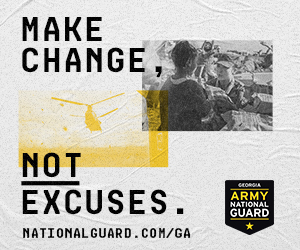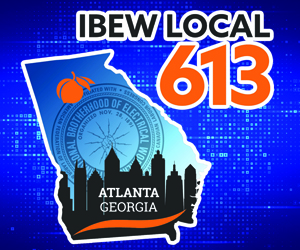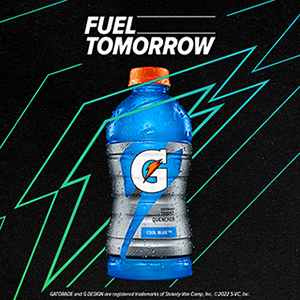There’s something about November college football that always gets the local television business excited. All four news stations created a large presence in Jacksonville last weekend for Georgia-Florida, though you would have needed a scorecard to keep up with the talent roster on CSS SportsNite’s hour-long preview show Friday night. After I saw the 12th talking head, I stopped counting, though I certainly applaud producer Jen Gleason for cramming as much content as she could have into a monster SportsNite one-off.
SportsNite has grown up considerably since its great-grandfather Sports Unlimited debuted on the old MediaOne cable system in 1996. Host Matt Stewart is still there, but he’s no longer plastered to a faux-laminate wall and a 28-inch monitor.
“SportsNite has grown by leaps and bounds,” said Gleason, the program’s senior producer. “It’s no longer four guys doing radio on TV. We go for the big names and high production value.”
True, I was digging the big jib shot for that Friday broadcast and saying a silent prayer that I had nothing to do with mixing audio for a five-person panel set against a drunk and screaming crowd at the Jacksonville Landing. Gleason tells me that more than 100 people were involved with the program, and I believe it.
I’ve written that there’s not an hour-long local show anywhere that couldn’t be done better in 30 minutes, but the Friday program had something fresh for me in every segment. Co-host Kelin Johnson might want work on his diction if he wants to make a career out of TV, but otherwise, Matt Chernoff, Bob Neal and the gang kept the good times rolling.
STILL GOT IT
Glad to see Verne Lundquist was back on his game last Saturday for CBS’ broadcast of Georgia-Florida. His call of the LSU-Georgia game the previous Saturday was so uncharacteristically bad that after the fourth or fifth gaffe, I was convinced that age was starting to get the best of the 68-year-old icon. Fortunately, Lundquist was razor-sharp in describing the carnage in Jacksonville, though if he screwed up in the fourth quarter, I doubt many UGA fans were watching to catch it.
On the other hand, his partner Gary Danielson is fast becoming the premiere color analyst in college football. True, he has the largest audience to begin with, but Danielson has risen quickly in his second year on the SEC package and marries nicely the folksy wit of a Paul Maguire with the first-hand quarterbacking knowledge of a Ron Jaworski. He makes great use of that light, airy voice that would never work in news or music radio but works perfectly as the wisecracking foil to Lundquist’s voice-of-God style. I didn’t mind Todd Blackledge in that role, but I can see why CBS switched to Danielson. (For example, he would have known exactly how to play off Mike Patrick’s infamous “Britney Spears” comment.) I’m surprised CBS hasn’t built more in-game promotion around Danielson yet, because I think he’s going to be a superstar.
CURRENT TIMES
The average fan probably doesn’t think about such things but if Pete Van Wieren were transported back in time to his first year of Braves announcing in 1976, I bet he’d be shocked at how many more bodies are involved in a daily broadcast after 32 years. I’m guessing fewer than 10 staffers played a role in announcing, producing, engineering and running the Braves radio network in 1976, while that number has probably grown to four times that today. The growth in Braves personnel on television would be even greater, of course.
Technology has made it easier to air comprehensive pre-game, post-game and mid-week shows and just the sheer increase of money in sports has provided stations the justification to hire more people who in turn produce more programming for the sales staff to monetize. All of which is good news for people who are interested in making a living in sports broadcasting. As I tell my students at Complete Game Broadcasting, “Who would have thought 20 years ago that radio stations would be hiring people to produce video for their websites?”
Music radio has trimmed back on personnel dramatically, but you can’t deny the number of jobs that sports have created for the radio industry in the last 10 years. And even in a recession, it’s still growing.
Jeff Batten owns Batten Communications, Inc., the Southeast’s largest independent sports production company. He also owns Complete Game Broadcasting in North Atlanta, a sports broadcasting training facility. His column appears twice-monthly in Score Atlanta. Send items of interest to jeff@completegame.tv.








































































